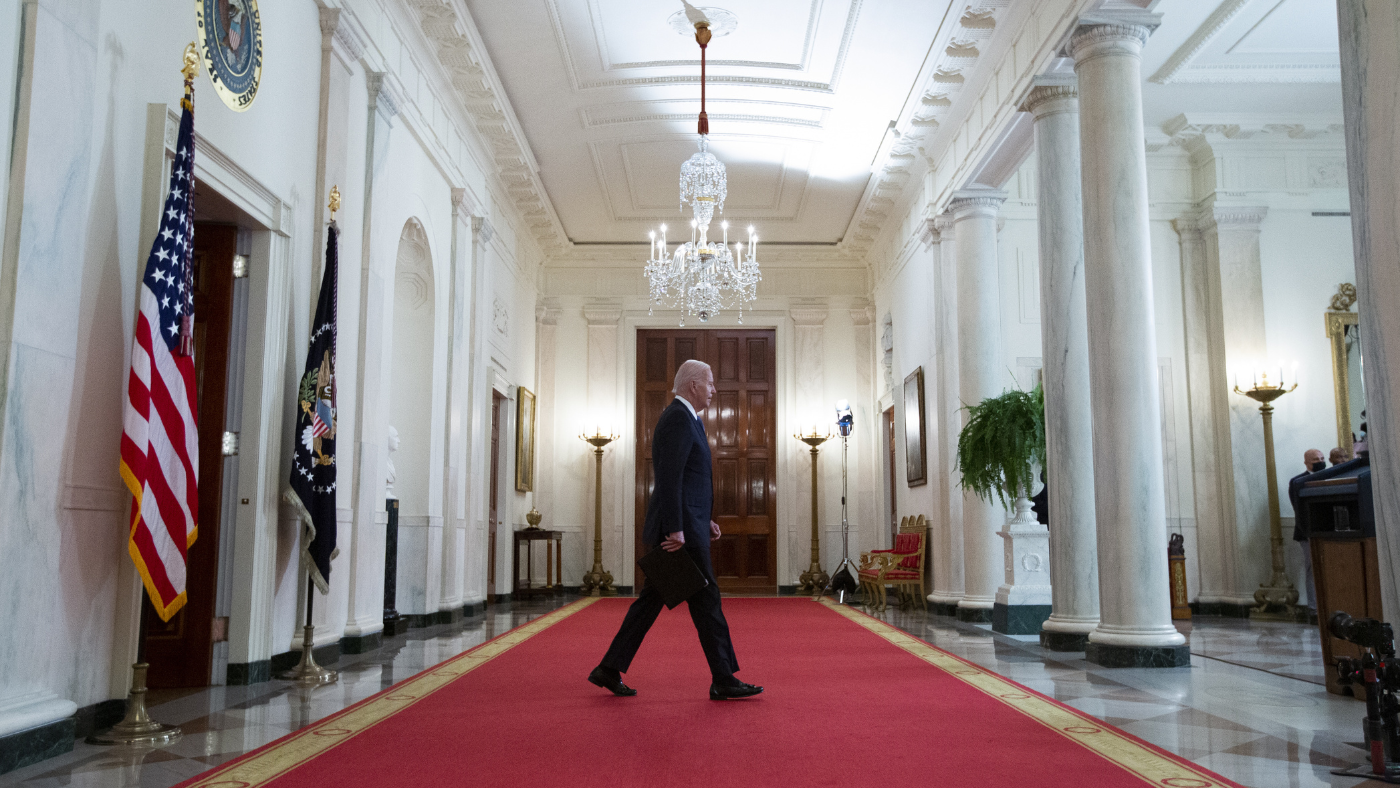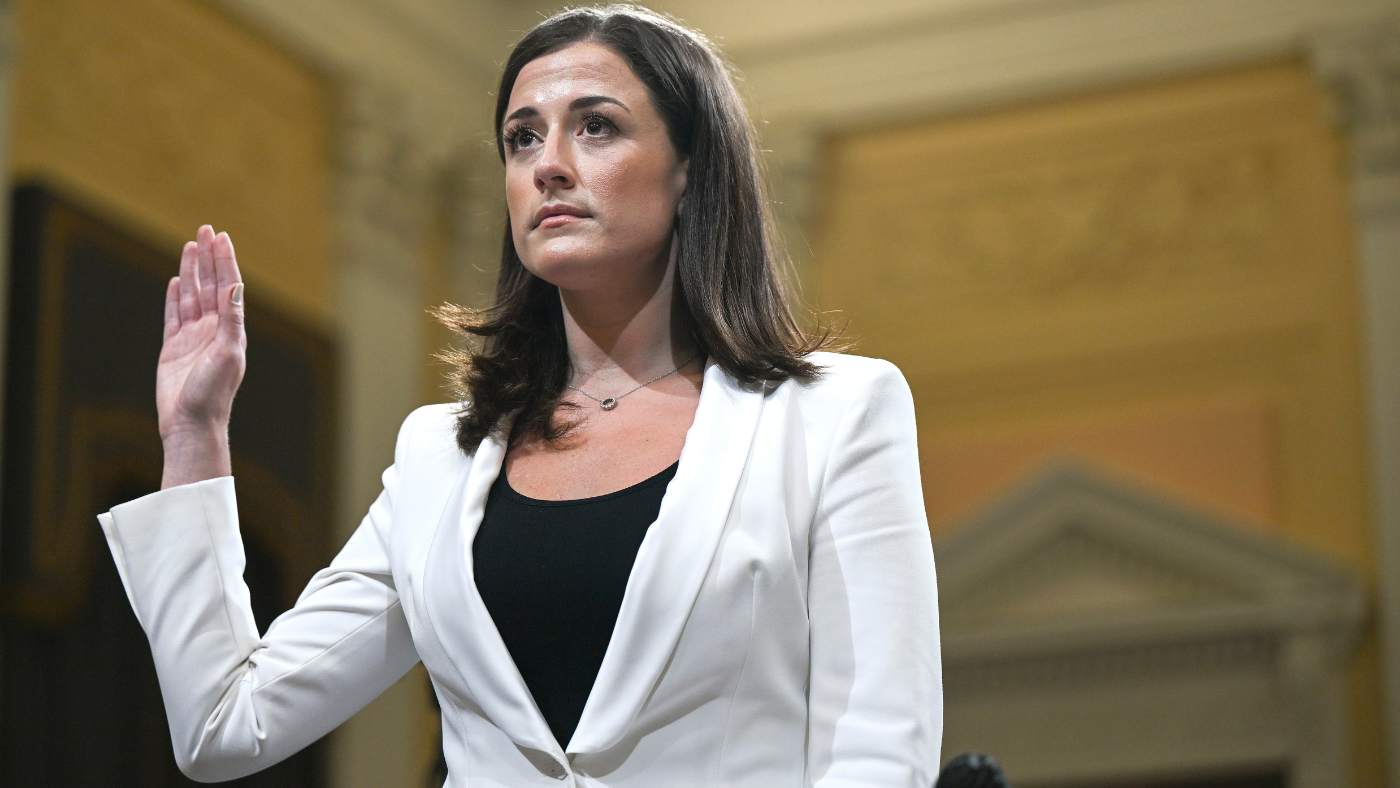‘If Boris Johnson felt shame, he wouldn’t be slashing universal credit’
Your digest of analysis from the British and international press

- 1. Boris Johnson knows he couldn’t live on universal credit – yet he expects others to make do
- 2. The problem is bigger than Keir Starmer – Labour’s centrists have run out of ideas
- 3. Farewell, Angela Merkel
- 4. University rankings are just an educated guess
- 5. Women's rights activists deserve to be heard, not vilified
A free daily email with the biggest news stories of the day – and the best features from TheWeek.com
You are now subscribed
Your newsletter sign-up was successful
1. Boris Johnson knows he couldn’t live on universal credit – yet he expects others to make do
Victoria Richards in The Independent
On a questionable ask
The prime minister delivered “the perfect politicians' answer" when he was asked whether he could live on a universal credit allowance of £118 a week, writes Victoria Richards at The Independent. An expression of sympathy was made, but the billions of pounds of tax needed to maintain the post-Covid economic uplift has to come out of some people’s pockets, said the PM. His blustered response swerved a definitive yes or no answer, but “we all know Boris Johnson wouldn’t (and couldn’t) live off £118 a week, and he’ll never have to,” says Richards. “Perhaps the real problem is bothering to ask the question in the first place”. After all, Johnson’s more familiar with the cost of a bottle of champagne than a pint of milk, she concludes.
The Week
Escape your echo chamber. Get the facts behind the news, plus analysis from multiple perspectives.

Sign up for The Week's Free Newsletters
From our morning news briefing to a weekly Good News Newsletter, get the best of The Week delivered directly to your inbox.
From our morning news briefing to a weekly Good News Newsletter, get the best of The Week delivered directly to your inbox.
2. The problem is bigger than Keir Starmer – Labour’s centrists have run out of ideas
Andy Beckett in The Guardian
On centrist stumbles
“These ought to be good times for the British centre left”, writes Andry Beckett in The Guardian. Not in the UK, with the Tories still ahead of Labour in the polls. “It’s easy to see why” the finger is being pointed to Keir Starmer, with his “limited political experience and stiff public persona”, not to mention “his failure to say clearly what he stands for”. But directing the blame at Starmer “misses a much bigger problem”, Beckett continues: “the British centre left has failed to renew itself”. Instead of “new and compelling ideas”, Labour centrists are too fixated on shaping their party, he says. And while the lengthy essay Starmer published this week “does show some awareness that the centre left needs to change”, it seems whatever Labour leaders say, “the Conservatives say them better”. Under Starmer, centrist talk “feels increasingly like depsperation”.
A free daily email with the biggest news stories of the day – and the best features from TheWeek.com
3. Farewell, Angela Merkel
Anna Sauerbrey in The New York Times
On changing tides
As Angela Merkel prepares to step down as Chancellor, the mood in Germany is one of “affectionate nostalgia, tinged with a drop of irony”, writes Anna Sauerbrey in The New York Times. But “as with most farewells, feelings are mixed”. The past 16 years have not been without tumult, she notes, but ultimately “under great pressure, Ms. Merkel was a conservative in the best sense”. Her leadership spanned the financial crash, the euro debt crisis, the migration crisis and the pandemic, and what Merkel achieved, Sauerbrey says, should be judged not on “what she built”, but rather “what she managed to keep”. But now, change has become an appealing prospect. While there will be times when Germany will “painfully miss” the Chancellor, ultimately, “it is time. Tschüss Mutti.”
4. University rankings are just an educated guess
John Gapper at The Financial Times
On settling school scores
There’s an awful lot riding on university rankings. St Andrew’s surpassed Oxbridge in one league table last week, and while it “generated much coverage”, the news “signifies little”, writes John Gapper in The Financial Times. The formulas used to calculate such lists are “inherently questionable”, he continues - but “in the contest to draw international students, an attractive rating is a prize currency”. The same institutions take the top spots time and time again.“Distinguished professors” attract “fine students”, the kind likely to donate funds to the university in the future, providing more resources and “improving their scores” before the cycle begins again. Students, writes Gapper, should keep a comfortable distance from the “status game”. “Visit some colleges, see which ones might suit you best”, he advises, “and try to ignore the noise”.
5. Women's rights activists deserve to be heard, not vilified
Meghan Gallacher MSP in The Scotsman
On hostile opposition
Proposed changes to Scotland’s Gender Recognition Act have divided the country. Both individuals and organisations who “have raised real concerns" about the possible implications for women's rights and protections “have been labelled by opponents as “transphobic” or “toxic””, writes Conservative MSP Meghan Gallacher in The Scotsman. “Rather than engaging with the substance of these issues”, those who are opposed to their concerns “seek to trivialise or dismiss” them, she says. The debate undermines the progress that has been achieved towards gender equality in Scotland, writes Gallacher. A “dismissive, and in some cases hostile, attitude” towards the “many women” with raising concerns around safe spaces and protections for women should be “heard not villified”, she concludes.
-
 Political cartoons for February 20
Political cartoons for February 20Cartoons Friday’s political cartoons include just the ice, winter games, and more
-
 Sepsis ‘breakthrough’: the world’s first targeted treatment?
Sepsis ‘breakthrough’: the world’s first targeted treatment?The Explainer New drug could reverse effects of sepsis, rather than trying to treat infection with antibiotics
-
 James Van Der Beek obituary: fresh-faced Dawson’s Creek star
James Van Der Beek obituary: fresh-faced Dawson’s Creek starIn The Spotlight Van Der Beek fronted one of the most successful teen dramas of the 90s – but his Dawson fame proved a double-edged sword
-
 Boris Johnson shocks UK by resigning from Parliament
Boris Johnson shocks UK by resigning from ParliamentSpeed Read
-
 Bees delay flight for three hours
Bees delay flight for three hoursfeature And other stories from the stranger side of life
-
 ‘The UK’s malaise will not end with the Prime Minister’s exit’
‘The UK’s malaise will not end with the Prime Minister’s exit’Instant Opinion Your digest of analysis from the British and international press
-
 ‘Police tactics are not getting worse, they are simply being filmed’
‘Police tactics are not getting worse, they are simply being filmed’Instant Opinion Your digest of analysis from the British and international press
-
 ‘G7 leaders missed a golden opportunity’
‘G7 leaders missed a golden opportunity’Instant Opinion Your digest of analysis from the British and international press
-
 ‘It takes some soul searching to celebrate Canada Day’
‘It takes some soul searching to celebrate Canada Day’Instant Opinion Your digest of analysis from the British and international press
-
 ‘Breakthrough on abortion rights could be there if Biden reaches for it’
‘Breakthrough on abortion rights could be there if Biden reaches for it’Instant Opinion Your digest of analysis from the British and international press
-
 ‘If only Mark Meadows had even half Cassidy Hutchinson’s courage’
‘If only Mark Meadows had even half Cassidy Hutchinson’s courage’Instant Opinion Your digest of analysis from the British and international press